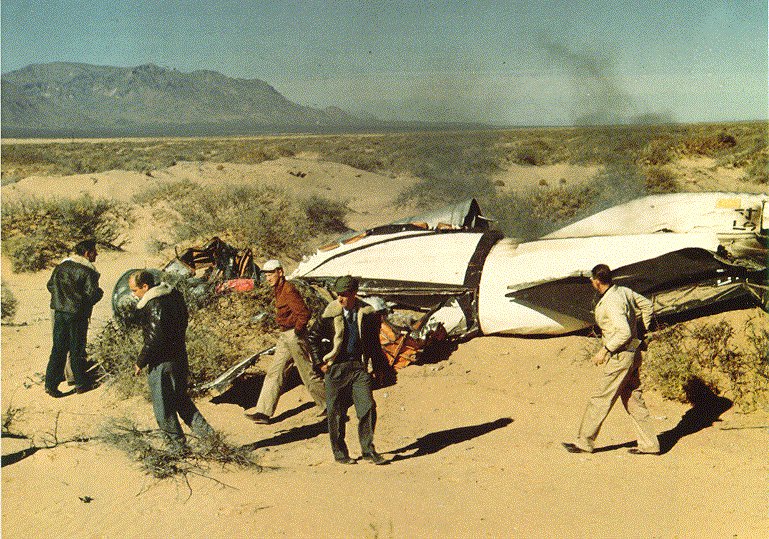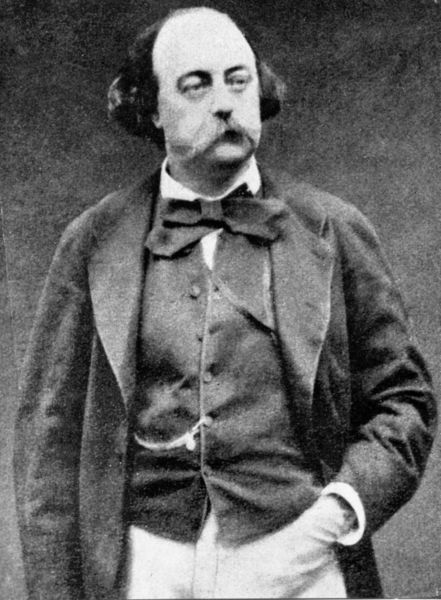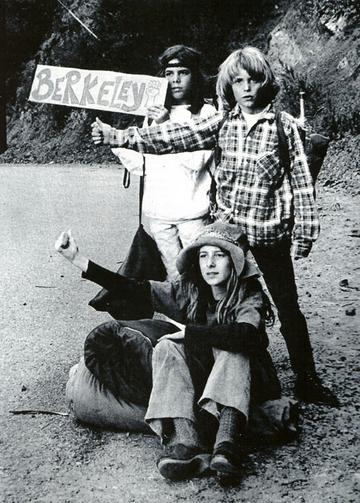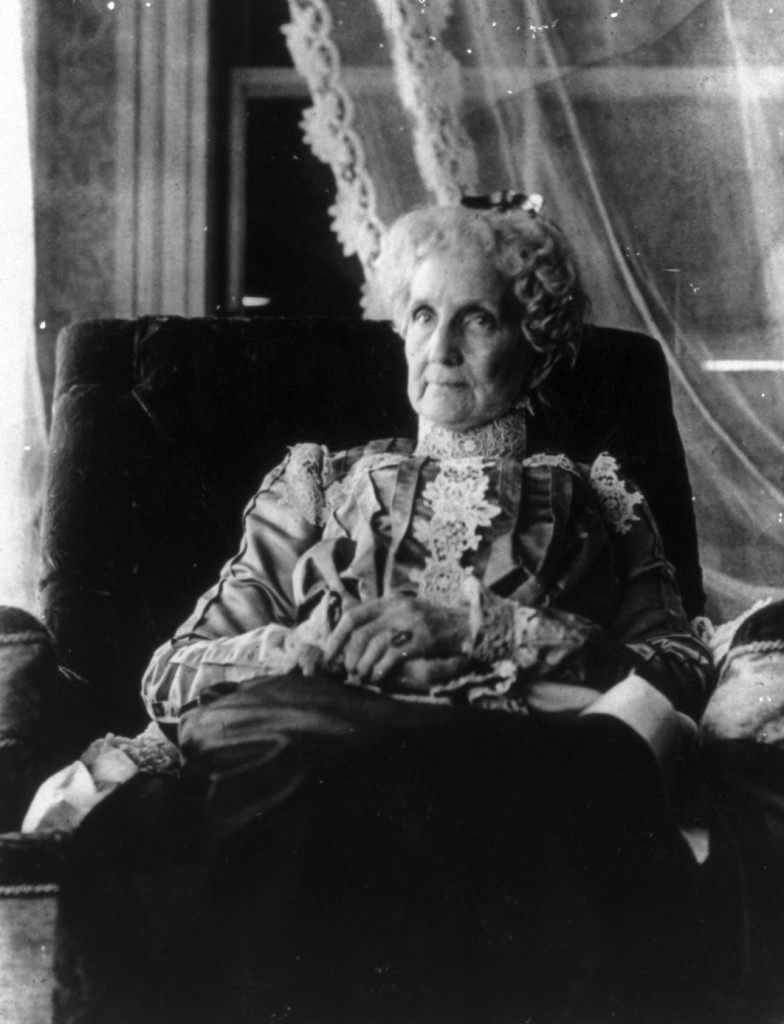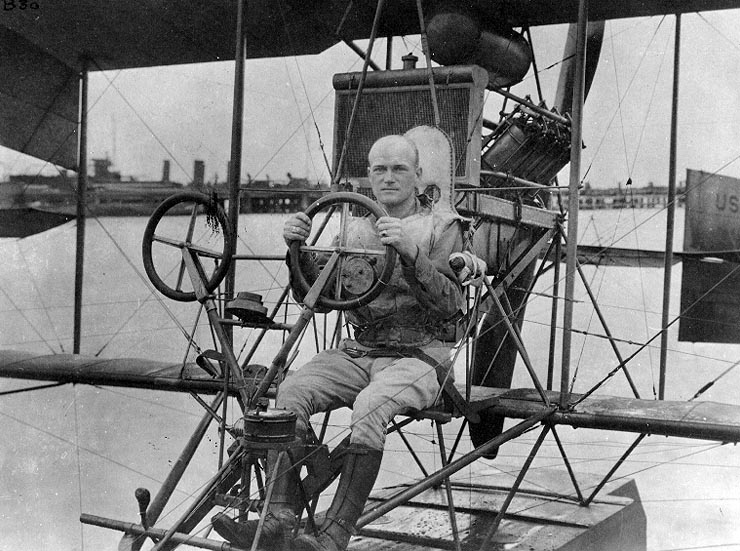George + Lennie is a glamorous musical that recalls the Roaring Twenties.
From the January 21, 1893 New York Times:
“Newark–Some shocking testimony was given here in the habeas corpus proceedings instituted by Mrs. Le Comte to recover possession of her child from her husband.
Mr. Le Comte said that the mother, while the child was teething, gave it a heavy dose of laudanum, and that once he found the child in a stupor at the table when he returned home for the evening, and learned from the servants that the little one had become intoxicated with beer. When he charged his wife with having administered it, she denied it, and a quarrel and a separation followed.
Alice Fisher, who had been a child’s nurse in the family, testified that she had seen Mrs. Le Comte give the child beer–a small glassful–and that when Mrs. Reeves, Mrs. Le Comte’s boon companion, asked Mrs. Le Comte to give the little one more beer to see how drunk she could make it, the request was complied with. The girl said that the child became intoxicated and trembled on the floor and rolled around in silly humor.
Mrs. Celia Smith testified that Mrs. Le Comte had once said to her that she was tempted to give the child enough drugs to stint the growth and make a museum freak of it.
After this testimony had been taken Mr. Le Comte consented to allow his wife to tale the child, in the hope of reconciling her.”
Tags: Alice Fisher, Mr. Le Comte, Mrs. Celia Smith, Mrs. Le Comte, Mrs. Reeves
H.G. Wells thought that Utopia was a place that would separate pristine living spaces from the despoiled, industrialized areas that would be exploited to support them. Google CEO Larry Page seems to have similar ideas. From Nathan Ingraham at the Verge:
“Specifically, [Page] said that ‘not all change is good’ and said that we need to build ‘mechanisms to allow experimentation.’
That’s when his response got really interesting. ‘There are many exciting things you could do that are illegal or not allowed by regulation,’ Page said. ‘And that’s good, we don’t want to change the world. But maybe we can set aside a part of the world.’ He likened this potential free-experimentation zone to Burning Man and said that we need ‘some safe places where we can try things and not have to deploy to the entire world.'”
Tags: H.G. Wells, Larry Page, Nathan Ingraham
The trouble with trying to take down a subject during an interview is that you often expose yourself as well. Chris Heath of GQ obviously doesn’t much like Ricky Gervais–or at least what he thinks the comic has become–but a particular line of questioning from his new interview is one of the more inane angles I’ve ever seen anyone take with a comedian. Let’s see, if you’re a stand-up, you shouldn’t say anything offensive and you shouldn’t trust your own judgement about what’s funny, although magazine writers are allowed to judge what’s an acceptable question. The excerpt:
“GQ:
You once went on a British chat show and when the host noted that you were looking newly fit and trim and asked how come, you replied, ‘AIDS.’
Ricky Gervais:
The joke there is that it was small talk. If that was the answer, I wouldn’t have said it. But what’s wrong with it? How would people be offended?
GQ:
Well, to joke about a disease that is killing loads of people…
Ricky Gervais:
I do that all the time! I do it all the time. If you can’t joke about the most horrendous things in the world, what’s the point of jokes? What’s the point in having humor? Humor is to get us over terrible things. That’s all it’s for. That’s why you should laugh at funerals. Of course it’s the wrong thing to say. That’s why it’s funny.
GQ:
You’ve said many times that your ultimate yardstick about whether something is all right to joke about is: ‘Is it coming from a good or bad place?’ Is it arrogant to think you can judge that?
Ricky Gervais:
It’s not that it’s arrogant, it’s just that I don’t know of any other judge. Outside of popularity. And popularity and democracy aren’t a judge, they’re just stats.”
Tags: Chris Heath, Ricky Gervais
The opening of a very good Mother Jones article by Kevin Drum about the double-edged sword that is the rise of the machines:
“THIS IS A STORY ABOUT THE FUTURE. Not the unhappy future, the one where climate change turns the planet into a cinder or we all die in a global nuclear war. This is the happy version. It’s the one where computers keep getting smarter and smarter, and clever engineers keep building better and better robots. By 2040, computers the size of a softball are as smart as human beings. Smarter, in fact. Plus they’re computers: They never get tired, they’re never ill-tempered, they never make mistakes, and they have instant access to all of human knowledge.
The result is paradise. Global warming is a problem of the past because computers have figured out how to generate limitless amounts of green energy and intelligent robots have tirelessly built the infrastructure to deliver it to our homes. No one needs to work anymore. Robots can do everything humans can do, and they do it uncomplainingly, 24 hours a day. Some things remain scarce—beachfront property in Malibu, original Rembrandts—but thanks to super-efficient use of natural resources and massive recycling, scarcity of ordinary consumer goods is a thing of the past. Our days are spent however we please, perhaps in study, perhaps playing video games. It’s up to us.
Maybe you think I’m pulling your leg here. Or being archly ironic. After all, this does have a bit of a rose-colored tint to it, doesn’t it? Like something from The Jetsons or the cover of Wired. That would hardly be a surprising reaction. Computer scientists have been predicting the imminent rise of machine intelligence since at least 1956, when the Dartmouth Summer Research Project on Artificial Intelligence gave the field its name, and there are only so many times you can cry wolf. Today, a full seven decades after the birth of the computer, all we have are iPhones, Microsoft Word, and in-dash navigation. You could be excused for thinking that computers that truly match the human brain are a ridiculous pipe dream.
But they’re not.” (Thanks Marginal Revolution.)
Tags: Kevin Drum
From The Philosopher’s Beard, the opening of a post that offers non-bigoted justifications for a ban on burqas in open societies, though I don’t think the arguments would be deemed acceptable if applied to other orthodox belief systems:
“Bans on wearing the burqa and other face-covering religious garb (such as are under consideration or recently passed in several European countries) fall under a class of restrictions by government on the free choice of individuals over private matters. They thus have the appearance of being illiberal, of disrespecting people’s natural rights to manage their own affairs in general, and to follow their own plan of life in particular. In fact, it is possible to justify such a ban in liberal terms. But not just any kind of ban will do.
Political debate about the burqa in the west is dominated by an unfortunate bigotry, a species of moral foolishness antithetical to liberalism. I have heard and read serious arguments for banning the burqa because it causes vitamin D deficiency (lack of sunshine), because people will try to rob banks dressed in burqas, because this is alien to our face-to-face culture, and so on. Such arguments are, respectively, trivial, stupid, and xenophobic (if not racist).
Yet it seems to me that there are in fact plausible liberal arguments for banning the burqa (and various other things, such as addictive drugs), which focus on the harms that the burqa may do to the personal autonomy of particularly vulnerable women and girls.”
Bret Easton Ellis, who fucked Blair who fucked Trent before they all fucked Clay, just did an Ask Me Anything on Reddit. He’s a godawful writer but if you want to look at his works as presaging the overt violence and sexuality of our virtual world, you can. Of course, that would be giving him far too much credit. A few exchanges from the AMA follow.
_____________________
Question:
I read in a German magazine you once were so drunk (or stoned) you confused texting and tweeting and asked for drugs on Twitter. Is that a true story?
Bret Easton Ellis:
Yeah. That’s a true story. I still left the drunken tweet on my Twitter feed, hoping one day it becomes a catch phrase.
_____________________
Question:
Bret Easton Ellis:
_____________________
Question:
Could you explain the ending to American Psycho to me like I’m a 5 year old?
Bret Easton Ellis:
_____________________
Question:
A lot of people were deeply shocked by the comments you made about David Foster Wallace, even after he had tragically committed suicide, particularly when you said he was “the most tedious, overrated, tortured, pretentious writer of my generation.”
What happened to create this feud? Were you surprised at the backlash your comments received?
Bret Easton Ellis:
There wasn’t a feud. David and I had never met. But I never responded to his work. Simple as that. I was reading the new bio and it was pissing me off–the kid gloves approach. And that I thought he had a literary fraudulence about him that manifested itself in his fiction. You could say the same about me. I was not surprised by the backlash to those tweets. There are a lot of little snowflakes who somehow really respond to this faux-earnestness of DFW that I just don’t think is realistic.
_____________________
Question:
Bret Easton Ellis:
A macabre and unpopular experiment in Upstate New York was the subject of an article in the May 24, 1897 New York Times. The story:
“Binghamton, N.Y.–A young girl, Annabelle Moray, was hypnotized last evening, placed in a coffin, and buried five feet under ground, to remain for forty-eight hours without food or drink. This is the first test of the kind ever attempted with a woman, and exhibition attracted a great crowd to Lestershire, a nearby suburb, where the burial took place. The village authorities threatened the hypnotist, Prof. Ceborne, with arrest, but allowed him to carry out the programme after he explained that no possible harm could result to the woman.
Late in the afternoon a dray with a broadcloth-covered coffin paraded through the principal streets of this city, bearing banners advertising the intended burial. The dray was closely followed by an open carriage containing Prof. Ceborne and his subject. Arriving at Lestershire, the procession was met by a large crowd of villagers, who loudly threatened the hypnotist, calling him a coward and a fakir. Trouble seemed imminent, and Miss Moray was hurried to her rudely improvised dressing room in a neighboring barn, to prepare for the burial.
Again the professor made a speech assuring those present that the subject was perfectly willing to be buried, and that no possible physical harm could come to her. When all was ready the professor asked for silence and said he would place the subject in a hypnotic state by a novel method. Retreating about twenty feet, the professor, first looking at the subject, whistled a weird Hindu chant, and in a few seconds the subject was in a deep hypnotic sleep. Upon examination by Dr. C.P. Roberts it was found that the girl’s muscles were seemingly paralyzed. The pulse, respiration, and temperature were normal. She did not respond to a touch or to any of the various tests made.
She was placed in the coffin and lowered into the grave. The ventilating shafts were carefully adjusted, and the Professor, with a parting word or warning that she must sleep without food or drink for for forty-eight hours, left her to her fate.”
Tags: Annabelle Moray, Prof. Ceborne
This telling segment July 31, 1971 Huntley-Brinkley Report (which was Chet Huntley’s final broadcast) is a pretty tremendous capsule of ’60s youth culture run aground, as there are accounts of rock festivals cancelled, the Manson Family murder trial in progress and Berkeley police attempting to shutter communes. Young reporter Tom Brokaw handles the Berkeley story.
The opening of the December 19, 1969 Life report about the Manson murders: “Long-haired, bearded little Charlie Manson so disturbed the American millions last week–when he was charged with sending four docile girls and a hairy male acolyte off to slaughter strangers in two Los Angeles houses last August–that the victims of his blithe and gory crimes seemed suddenly to have played only secondary roles in the final brutal moments of their own lives. The Los Angeles killings struck innumerable Americans as an inexplicable controversion of everything they wanted to believe about the society and their children–and made Charlie Manson seem to be the very encapsulation of truth about revolt and violence by the young.”
At present, there are 13 used copies of Eric Walker’s oddly titled, out-of-print 1982 baseball-themed paperback, The Sinister First Baseman & Other Observations, on sale from Amazon sellers, and the cheapest one, in merely “Acceptable” condition, goes for $104.96. Who, exactly, is Eric Walker and why does he have so much value for so few people?
There were always those who suspected that baseball’s conventional wisdom was not so wise, but in the 1970s, Walker, a Bay Area baseball fan birthed the idea of Moneyball before Sandy Alderson or Billy Beane had entered the game. Even he, however, had an important precursor. From “The Forgotten Man of Moneyball,” Walker’s 2009 Deadspin article, a passage about his inspiration:
But who am I, and why would I be considered some sort of expert on moneyball? Perhaps you recognized my name; more likely, though, you didn’t. Though it is hard to say this without an appearance of personal petulance, I find it sad that the popular history of what can only be called a revolution in the game leaves out quite a few of the people, the outsiders, who actually drove that revolution.
Anyway, the short-form answer to the question is that I am the fellow who first taught Billy Beane the principles that Lewis later dubbed ‘moneyball.’ For the long-form answer, we ripple-dissolve back in time to San Francisco in 1975, where the news media are reporting, often and at length, on the supposed near-certainty that the Giants will be sold and moved. There sit I, a man no longer young but not yet middle-aged, a man who has not been to a baseball game — or followed the sport — for probably over two decades, but a man who in childhood used to paste New York Giants box scores into a scrapbook, and who remembers, dimly but fondly, such folk as Whitey Lockman and Wes Westrum.
Carpe diem, I think.
With my lady, also a baseball fan of old, I go to a game. We have a great time; we go to more games, have more great times. I am becoming enthused. But I am considering and wondering — wondering about the mechanisms of run scoring, things like the relative value of average versus power. Originally an engineer by trade, I am right there with Lord Kelvin: ‘When you cannot measure it and express it in numbers, your knowledge is of a very meagre and unsatisfactory kind.’ I fiddle with some numbers; but I vaguely remember Branch Rickey’s work, the cover story in Life magazine for Aug. 2, 1950, [ed. note: it was actually 1954 and not a cover story] and think that I may not need to reinvent the wheel. I go to the San Francisco main library, looking for books that in some way actually analyze baseball. I find one. One. But what a one.
If this were instead Reader’s Digest, my opening of that book would be ‘The Moment That Changed My Life!’ The book was Percentage Baseball, by one Earnshaw Cook, a Johns Hopkins professor who had consulted on the development of the atomic bomb. Today, when numerical analysis of baseball performance is a commonplace, it is hard to grasp how revolutionary, even shocking, were the concepts Cook was developing (Rickey’s work, which had quickly dropped off everyone’s radar, notwithstanding). The book was, and remains, awe-inspiring.•
Tags: Billy Beane, Earnshaw Cook, Eric Walker, Sandy Alderson
From “Slaves to the Algorithm,” Steven Poole’s new Aeon essay about handing over function, and by extension, moral judgement, to math:
“At first thought, it seems like a pure futuristic boon — the idea of a car that drives itself, currently under development by Google. Already legal in Nevada, Florida and California, computerized cars will be able to drive faster and closer together, reducing congestion while also being safer. They’ll drop you at your office then go and park themselves. What’s not to like? Well, for a start, as the mordant critic of computer-aided ‘solutionism’ Evgeny Morozov points out, the consequences for urban planning might be undesirable to some. ‘Would self-driving cars result in inferior public transportation as more people took up driving?’ he wonders in his new book, To Save Everything, Click Here (2013).
More recently, Gary Marcus, professor of psychology at New York University, offered a vivid thought experiment in The New Yorker. Suppose you are in a self-driving car going across a narrow bridge, and a school bus full of children hurtles out of control towards you. There is no room for the vehicles to pass each other. Should the self-driving car take the decision to drive off the bridge and kill you in order to save the children?
What Marcus’s example demonstrates is the fact that driving a car is not simply a technical operation, of the sort that machines can do more efficiently. It is also a moral operation. (His example is effectively a kind of ‘trolley problem’, of the sort that has lately been fashionable in moral philosophy.) If we let cars do the driving, we are outsourcing not only our motor control but also our moral judgment.”
Tags: Evgeny Morozov, Gary Marcus, Steven Poole
From Colin Druce-McFadden’s Dvice piece about houseplants perhaps being the future of solar cells:
“Photosynthesis is a pretty basic process that scientists have understood for quite a while. But a recent breakthrough in the collection of solar energy just might have a few members of the scientific community dusting off their biology textbooks. A team of researchers at the University of Georgia have reportedly figured out how to harness photosynthesis in the creation of electricity.
It’s actually something that it turns out is pretty intuitive, because of the way plants use solar energy to feed themselves is by splitting up water molecules and using the electrons in the creation of sugars. But the research team at the University of Georgia decided that a better use of those electrons, freed by plants from water molecules, were better off powering our devices for us.”
Tags: Colin Druce-McFadden
This classic photograph profiles late-life Mary Baker Eddy, who was the founder of the hokum known as Christian Science, a scripture-based faith healing that believed medicine and hygiene were unnecessary. She was born in 1812 in New Hampshire, began “hearing voices” in her girlhood, and was soon known for her ability to “cure” animals and people alike. Her talent and charisma and persistence allowed her to remarkably create an international cult in an age long before mass media. Even her detractors were awed by her unlikely empire. In an otherwise lacerating 1903 critique of Mrs. Eddy, Mark Twain wrote: “She is interesting enough without an amicable agreement. In several ways she is the most interesting woman that ever lived, and the most extraordinary. The same may be said of her career, and the same may be said of its chief result. She started from nothing. Her enemies charge that she surreptitiously took from Quimby a peculiar system of healing which was mind-cure with a Biblical basis. She and her friends deny that she took anything from him. This is a matter which we can discuss by-and-by. Whether she took it or invented it, it was—materially—a sawdust mine when she got it, and she has turned it into a Klondike.”
Eddy became a shadowy figure in her later years–was she a morphine addict as rumors suggested? was she mentally unfit to care for herself?–though it didn’t diminish her hold on the public’s attention. She died on December 3, 1910. A passage about the origins of her calling from an article about her two days later in the New York Times:
“Some of her friendly biographers quote Mrs. Eddy as having said in describing the discovery of her so-called psychological sense:
When I was very little I used to hear voices. They called me. They spoke my name. ‘Mary! Mary!’ I used to go to my mother and say, ‘Mother did you call me? What do you want?’ and she would say ‘No, my child, I didn’t call you.’ Then I would go away and play but the voices would call me again distinctly.
There was a day when my cousin, whom I dearly loved. was playing with me, and she too heard the voices. She said: ‘You’re mother’s calling you, Mary,’ and when I didn’t go I could hear them again. But I knew that it wasn’t mother. My cousin didn’t know what to make of my behavior, because I was always an obedient child. ‘Why, Mary,’ she repeated, ‘what do you mean by not going?’
When she heard the voices again she went to my mother, and my cousin said:
‘Didn’t you call Mary?’ My mother asked if I heard voices and I said I did. Then she asked my cousin if she heard them, and when she said ‘Yes,’ my mother cried.
She talked with me that night and told me, when I heard them again–no matter where I was-to say: ‘What wouldst Thou, Lord? Here I am.’ That is what Samuel said, you know, when the Lord called him. She told me not to be afraid, but to surely answer.
The next day I heard voices again, but was too frightened to speak. I felt badly. Mother noticed it and asked me if I had heard the call again. When I said that I was too frightened to say what she had told me she talked with me and told me that the next time I must surely answer and not fear.
When the voice came again I was in bed. I answered as quickly as I could, as she had told me to do, and when I had spoken a curious lightness came over me. I remember it so well! It seemed to me I was being lifted off my little bed, and I put out my hands and caught the sides. From that time I never heard the voices. They ceased.”
Tags: Mark Twain, Mary Baker Eddy
Those drones we send out to “cleanly” do our dirty work will no doubt eventually become tools of terror. Eric Schmidt tells the Guardian that we should ban privately owned drones, but it would seem to be impossible in our maker culture to put that cat back in the basket. An excerpt from the article:
“The use of cheap, miniature ‘everyman’ drones needs to be banned by international treaties before such devices fall into the hands of private users including terrorists, the head of Google has said.
In an extended interview with the Guardian, Eric Schmidt, executive chairman of Google and an adviser to Barack Obama’s Presidential campaign, warned of the potential of new technology to ‘democratize the ability to fight war,’ and said drones could soon be used to harass and spy on neighbors.
‘You’re having a dispute with your neighbor,’ he hypothesized. ‘How would you feel if your neighbor went over and bought a commercial observation drone that they can launch from their back yard. It just flies over your house all day. How would you feel about it?’
Schmidt set out the trajectory of robotic warfare and considered whether it would be confined solely to national governments. ‘It’s probable that robotics becomes a significant component of nation state warfare,’ he said.
‘I’m not going to pass judgment on whether armies should exist, but I would prefer to not spread and democratize the ability to fight war to every single human being.'”
Tags: Eric Schmidt
From “China: Year Zero,” Christian Caryl’s Foreign Policy piece about the modest beginnings of an economic miracle, an excerpt about Americans attending 1979’s curious Canton Trade Fair:
“On the appointed day, they set off from Guangzhou in a van that jolted down hideous dirt roads for hours. At one point it broke down, and everyone had to get out and walk to a spot where the Chinese hosts were able to arrange for another ride. The walk was not a total loss; the little group passed by a rural private market where local farmers were hawking all manner of produce, a vignette none of the Americans in the group could ever remember having seen before.
Finally, after a full day’s journey in the intense heat, they arrived at their destination. It turned out to be just across the border from Hong Kong — not far from the Lo Wu crossing where all foreigners made their entry into mainland China. (In these days you couldn’t fly directly to Beijing from the outside world.) The bewildered Americans followed their hosts to the top of a dike, where the Chinese guides gestured at the vista spread before them. It was not clear what they were meant to look at. All that the Americans could see was the usual South China landscape: There were rice paddies, worked by peasants and their water buffalos in the time-honored manner, and duck ponds. There were a few trees, and here and there a modest peasant dwelling. What the Chinese were describing seemed to bear no relationship to the observable reality. This, they told the Americans, was the location of something called the Baoan Foreign Trade Base. The party had designated it as a special location for foreign investment. According to the plans under consideration, it would soon be the site of chemical factories and textile mills and manufacturing plants. And, oh yes, there would also be plenty of hotels for the foreign businessmen. It was going to be a wonderful chance to make money.
The Americans thought the Chinese were crazy. ‘It stretched everybody’s imagination,’ [Tom] Gorman said. ‘I don’t think there was one of us who listened to the briefing and thought, ‘Yeah, that sounds feasible.’ It was, emphatically, ‘Come on, what are you smoking?’
The next day, after an uncomfortable night spent in the only existing local hotel (which had no electricity or running water), the Americans attended a briefing where the Chinese unrolled blueprints that depicted acres of factories, warehouses, and other facilities. The plans betrayed a startling ambition. ‘It was really hard to believe,’ Gorman recalled. ‘Nothing in China at that point happened quickly — except politics. Business and construction didn’t happen on those kinds of timelines.'”
Tags: Christian Caryl, Tom Gorman
From Farhood Manjoo’s new Slate piece about Elon Musk’s underlying strategy in developing electric-car infrastructure in America:
“Tesla wants to be just like Apple. That’s not a bad goal—Apple has done quite well for itself. But what few in the tech press have noticed is that Musk seems to have another tech titan in mind: Google. Musk knows that there’s a single, towering problem in the electric car business: a lack of infrastructure. Batteries aren’t good enough, charging stations are too far apart, and there aren’t enough mechanics and dealers. Tesla is trying to create this infrastructure by itself, which means everything’s moving more slowly than it could. If the entire car business worked together to improve this stuff, batteries and charging infrastructure would improve at a faster pace.
So how can Tesla persuade General Motors, Ford, Toyota, Mercedes, BMW, and other car giants—not to mention other car startups that are similar in size to Tesla—to all work together to improve the world’s electric vehicle infrastructure? By licensing its tech to its competitors, in the same way that Google gives Android away to every phone-maker in the world.
That’s exactly what Tesla has started doing. “
Tags: Elon Musk, Farhood Manjoo
Baseball pitchers should have been wearing padded caps or fitted helmets for years, but, you know, Bud Selig is MLB Commissioner, so everything has to move at a glacial pace. The only good thing to come out of the harrowing recent incident that saw Toronto pitcher J.A. Happ suffer a skull fracture after being struck by a batted ball was the solution to the problem brainstormed by Tampa Bay’s southpaw Matt Moore. From Roger Mooney in the Tampa Tribune:
“ST. PETERSBURG – It was after the shock of seeing the line drive slam into the side of J.A. Happ’s head had subsided a bit – after word spread through the Rays dugout that as scary as it seemed, the Toronto starter would be OK – when the Tampa Bay pitchers discussed ways to avoid such incidents.
Matt Moore suggested a sensor inside the baseball and one inside the pitcher’s cap that would cause the ball to explode when it came within a certain distance of the pitcher’s head.
‘That’s Matt’s great idea. I kind of like it,’ Rays pitcher David Price said.”
Tags: Bud Selig, David Price, J.A. Happ, Matt Moore, Roger Mooney
Two versions of “Space Oddity.”
Now: Canadian astronaut Chris Hadfield from the International Space Station.
44 years ago: David Bowie’s original video.
Tags: Chris Hadfield, David Bowie

“You would grab the cheapest bottle of gin from a liquor store.”
ODD REQUEST!! Bring us a bottle to our hospital rooms – $20 (Murray Hill)
Listen, my buddy and I have been in Beth Israel dealing with some recovering from a bad accident. However, we’ve been here FOREVER, and have some time to go. We would love a nice drink at night while playing cards. Can anyone help us out? You would grab the cheapest bottle of Gin from a liquor store, then bring it up. Easiest $20 you can make!!
In the future, and not too far in it, genetically modified foods and in vitro ones will be our best hope, perhaps our only hope. The opening of a New York Times article by Henry Fountain about a hamburger “born” of beef-muscle tissue grown in a Dutch lab, a project I blogged about nearly a year ago:
“MAASTRICHT, the Netherlands — As a gastronomic delicacy, the five-ounce hamburger that Mark Post has painstakingly created here surely will not turn any heads. But Dr. Post is hoping that it will change some minds.
The hamburger, assembled from tiny bits of beef muscle tissue grown in a laboratory and to be cooked and eaten at an event in London, perhaps in a few weeks, is meant to show the world — including potential sources of research funds — that so-called in-Vitro meat, or cultured meat, is a reality.
‘Let’s make a proof of concept, and change the discussion from ‘this is never going to work’ to, ‘well, we actually showed that it works, but now we need to get funding and work on it,’ Dr. Post said in an interview last fall in his office at Maastricht University.
Down the hall, in a lab with incubators filled with clear plastic containers holding a pinkish liquid, a technician was tending to the delicate task of growing the tens of billions of cells needed to make the burger, starting with a particular type of cell removed from cow necks obtained at a slaughterhouse.”
Tags: Henry Fountain, Mark Post
From the November 22, 1906 New York Times:
“‘Writing love letters to his teacher in Public School N. 70, at 207 East Seventy-fifth Street,’ was the charge made against thirteen-year-old John Smith of 315 Easy Seventy-fifth Street in the Childrens’ Court yesterday by Patrolman Alexander Frazier. John went free because the teacher failed to appear against him.
William Adams, janitor of the school, approached Patrolman Frazier dragging Johnny Smith by the arm, and asked him to arrest the boy. When the officer first asked what the boy had done, the janitor declared that he was guilty of disorderly conduct.
‘He’s been writing love letters to his teacher and won’t stop, though he has been warned enough,’ explained the janitor. The name of the teacher who had won Johnny’s heart did not appear in the policeman’s complaint, but the janitor promised that she would be in court yesterday. Johnny is large for his age and matter of fact in appearance. It was said that he had not only written love letters to the teacher, but had made the unpardonable mistake of reading them to others before sending them.
‘Gee! That was a narrow escape,’ said Johnny when he went free.”
Tags: John Smith, Patrolman Frazier, William Adams
The opening of Jaron Lanier’s piece in Wired about Moore’s Law, which is excerpted from his new book, Who Owns the Future?:
“Moore’s Law is Silicon Valley’s guiding principle, like all ten commandments wrapped into one.
The law states that chips get better at an accelerating rate. They don’t just accumulate improvements, in the way that a pile of rocks gets higher when you add more rocks. Instead of being added, the improvements multiply. The technology seems to always get twice as good every two years or so. That means after forty years of improvements, microprocessors have become millions of times better.
No one knows how long this can continue. We don’t agree on exactly why Moore’s Law or other similar patterns exist. Is it a human-driven, self-fulfilling prophecy or an intrinsic, inevitable quality of technology?
Whatever is going on, the exhilaration of accelerating change leads to a religious emotion in some of the most influential tech circles. It provides a meaning and context.
Moore’s Law means that more and more things can be done practically for free, if only it weren’t for those people who want to be paid. People are the flies in Moore’s Law’s ointment. When machines get incredibly cheap to run, people seem correspondingly expensive.
It used to be that printing presses were expensive, so paying newspaper reporters seemed like a natural expense to fill the pages. When the news became free, that anyone would want to be paid at all started to seem unreasonable.
Moore’s Law can make salaries — and social safety nets — seem like unjustifiable luxuries.”
Tags: Jaron Lanier








